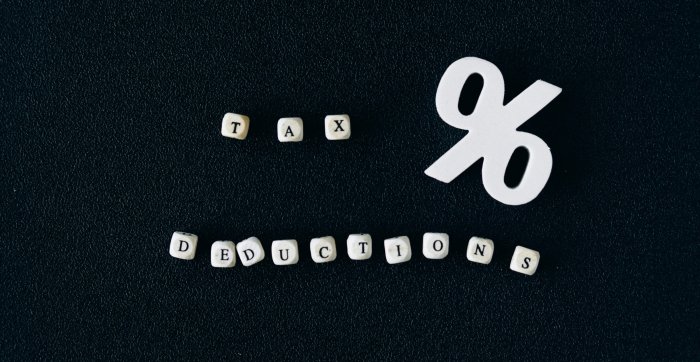
Are you working from home? Whether you’re a sole trader, small business owner or employee, there are tax deductions on home office expenses that you are able to claim.
From 1 July 2022, taxpayers working from home can claim deductions based on the fixed rate method of 67 cents per hour, or their actual expenses (actual cost method).
Fixed rate method – 67 cents
To use the fixed rate method, you must:
- Be working from home while carrying out your employment duties or carrying on your business
- Incur specific additional running expenses as a result of working from home
- Have a record of the total number of hours you work from home and the running expenses you incur while working at home
You can claim 67 c for each hour you work from home during the relevant income year. The rate includes the additional running expenses you incur for:
- Home and mobile internet or data expenses
- Mobile and home phone usage expenses
- Electricity and gas (energy expenses) for heating, cooling and lighting
- Stationery and computer consumables, such as printer ink and paper.
The rate per work hour (67c) includes the total deductible expenses for the above additional running expenses. If you’re using this method, you can’t claim an additional separate deduction for these expenses.
Separate claims can be made for depreciation of computers or office furniture, repairs, cleaning and maintenance. The threshold cost for depreciation of an asset remains at $300.
Also, if more than one individual is working from home at the same time, each individual will be able to apply the fixed rate method if they each meet the requirements listed above.
The records you need to keep
You need to keep the following records to prove your working from home tax deductions:
- A record which is representative of the total number of hours you worked from home during the period from 1 July 2022 to 31 December 2022; and
- A record of the total number of actual hours you worked from home from 1 March 2023 onwards.
For the 2024 and later financial years, the ATO expects you to keep a record for the entire income year of the number of hours they worked from home during that income year. An estimate for the entire income year or an estimate based on the number of hours worked from home during a particular period will not be accepted.
A record of your hours for the income year can be in the form of:
- Timesheets
- Rosters
- A diary or similar document kept contemporaneously.
You must also keep evidence for each of the additional running expenses that you incurred. The documents you need to keep in order to demonstrate that you have incurred additional running expenses must show what the expense is and that you incurred the expense.
For energy, mobile and/or home telephone and internet expenses, you must keep one monthly or quarterly bill. If the bill is not in your name, you will also have to keep additional evidence showing you incurred the expenses; for example, a joint credit card statement showing payment or a lease agreement showing you share the property, and therefore the expenses, with others.
For stationery and computer consumables, which are occasional expenses, you must keep one receipt for each item purchased.
One benefit is that you no longer need to have a separate home office or dedicated work area set aside in your home in order to reply on the fixed rate method.
Expenses you can’t claim
You can’t claim a deduction for the following expenses if you’re an employee working at home. These include:
- Coffee, tea, milk and other general household items, even if your employer may provide these at work
- Costs that relate to your children’s education such as equipment you buy – for example, iPads and desks, subscriptions for online learning
- Items your employer provides – for example, a laptop or a phone
- Any items where your employer pays for or reimburses you for the expense.
As an employee working from home, generally:
- You can’t claim occupancy expenses (e.g. mortgage interest, rent, land taxes or house insurance premiums. etc.)
- There will be no capital gains tax (CGT) implications for your home.
Talk to our KMT tax adviser about the best way to calculate the deductions and the record-keeping requirements.
Reference: ATO website
About our adviser: Chrisanthe Lekatis is renowned for her expertise in management accounting, virtual CFO services, and top-tier business advice. She empowers management with tailored strategies for success, streamlining processes to achieve efficient and cost-effective outcomes. Her commitment to building trust and lasting relationships goes beyond professional excellence; it’s a personal ethos. By actively listening and understanding her clients’ businesses and goals, Chrisanthe thrives on collaborative efforts to navigate challenges and collectively achieve their aspirations. Please do not hesitate to reach out if you need assistance.
Michael Fox has been dedicated to the success of his clients, devising comprehensive wealth strategies for both personal and business growth for over 4 decades. With extensive expertise in business governance and family business succession, Michael specialises in empowering emerging businesses and family enterprises by fostering renewal, enhancing value and smooth transitions to the next generation. Please do not hesitate to reach out if you need assistance with your business valuation.
This is general advice only and does not take into account your financial circumstances, needs and objectives. Before making any decision based on this document, you should assess your own circumstances and get professional advice from a qualified accountant at KMT Partners.


